10, June 2024
France: Macron takes huge risk with surprise election 0
President Emmanuel Macron has called snap parliamentary elections later this month in the wake of a big victory for his rival Marine Le Pen’s National Rally in the European Parliament vote.
The far-right party is on course to win 32% of the vote, exit polls say, more than twice that of the president’s Renaissance party.
Announcing the dissolution of parliament, he said the two rounds of voting would take place on 30 June and 7 July, a few weeks before the Paris Olympics.
Mr Macron made the dramatic and surprise decision in a televised address from the Élysée Palace an hour after voting closed and exit polls had been declared in France’s EU elections.
His decision came not long after National Rally’s 28-year-old leader, Jordan Bardella, had openly called on the president to call parliamentary elections.
“I have heard your message,” the president told French voters, “and I will not let it go without a response.”
“France needs a clear majority in serenity and harmony,” he said, adding that he could not resign himself to the far-right’s progress “everywhere in the continent”.
Now barely two years into his second term as president, Mr Macron already lacks a majority in the French parliament, and though this European vote in theory has no bearing on national politics, he clearly decided that continuing his mandate without a new popular consultation would place too much of a strain on the system.
The upcoming parliamentary elections also won’t affect Mr Macron’s own job, as they are separate from the presidential elections and his term as president still runs for three more years.
Ms Le Pen, who has twice been defeated by Mr Macron in presidential elections, immediately reacted, saying her party was “ready to exercise power, ready to put an end to mass immigration”.
Calling a snap election is a huge surprise for the country, and a huge risk for President Macron.
He could have reacted differently. He could have just kept going, explaining the far right’s massive victory as a European aberration which would be corrected at more important elections.
He could have trusted to the impending European football championship in Germany and above all the Paris Olympics to keep people’s minds off politics for a couple of months.
That was certainly how the Paris commentariat thought he would take his party’s rout.
But one can only assume the president had seen this coming, and planned his response in advance.
Source: BBC



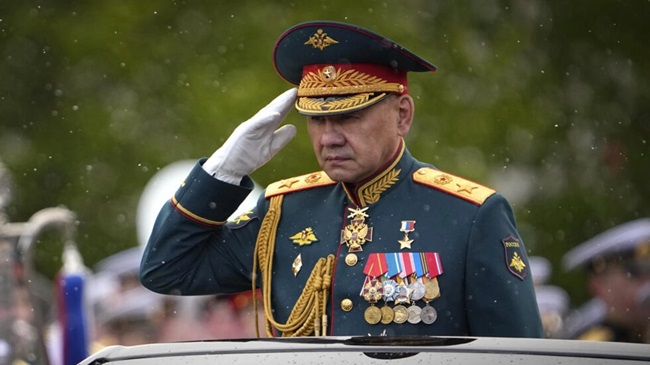

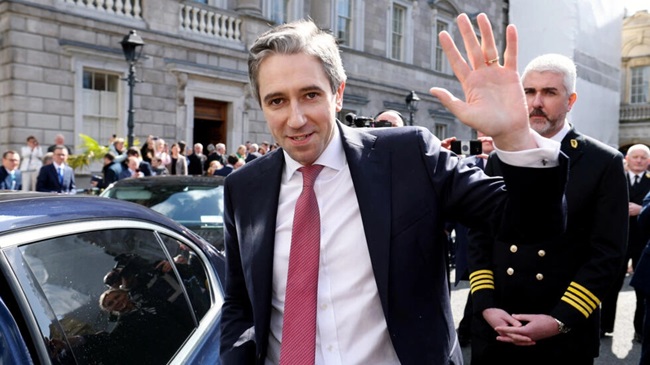

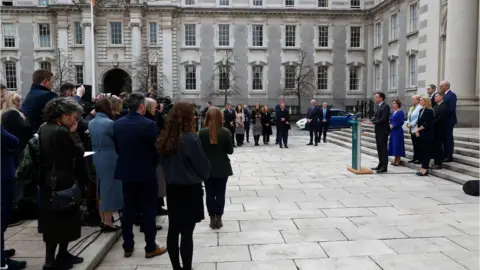 PA MediaMr Varadkar said he felt he was not the “best person for the job anymore”
PA MediaMr Varadkar said he felt he was not the “best person for the job anymore”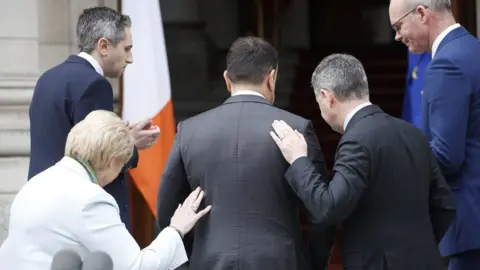 Nick Bradshaw
Nick Bradshaw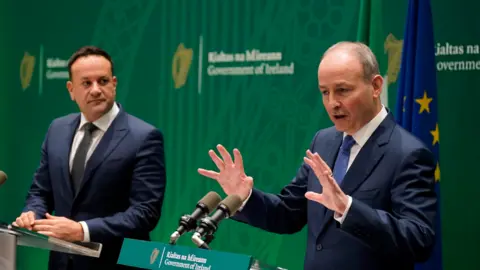 PA MediaMicheál Martin said he was “surprised” when he heard that Mr Varadkar was stepping down
PA MediaMicheál Martin said he was “surprised” when he heard that Mr Varadkar was stepping down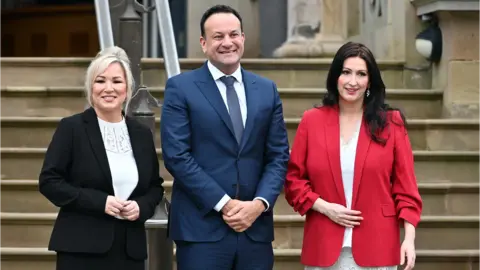 PA MediaFirst Minister Michelle O’Neill (left) called for a general election in the Republic of Ireland
PA MediaFirst Minister Michelle O’Neill (left) called for a general election in the Republic of Ireland
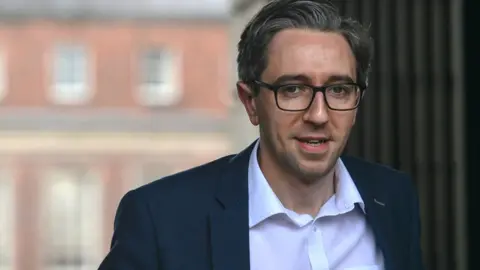 Getty ImagesHigher Education Minister Simon Harris is the early favourite with many bookmakers
Getty ImagesHigher Education Minister Simon Harris is the early favourite with many bookmakers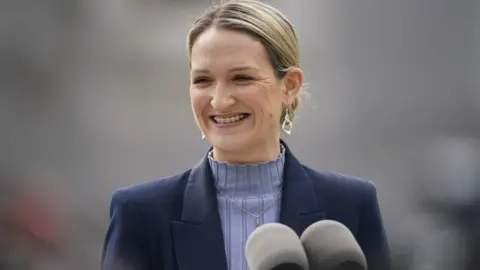 Niall CarsonAfter widespread disorder in Dublin last year, Helen McEntee faced down calls to resign from opposition parties
Niall CarsonAfter widespread disorder in Dublin last year, Helen McEntee faced down calls to resign from opposition parties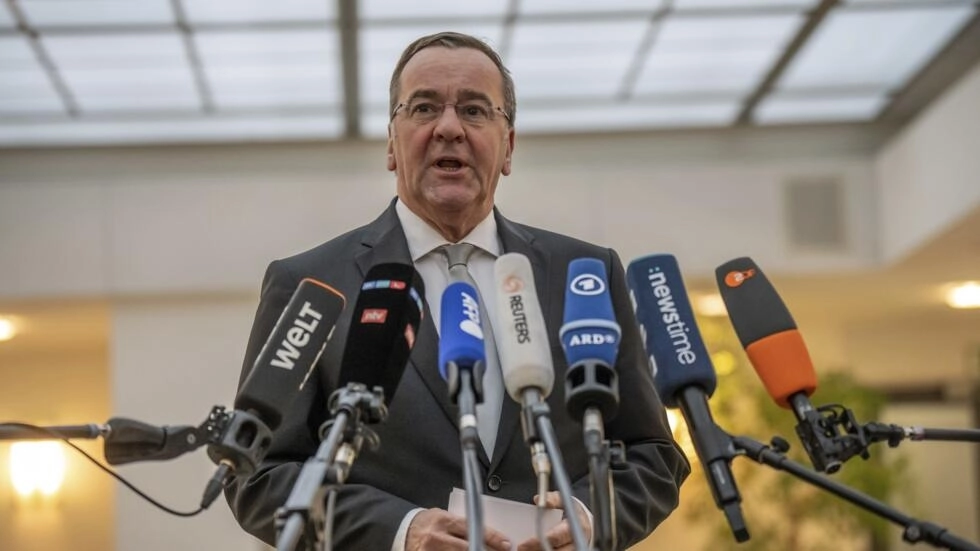



















5, July 2024
New British Prime Minister poised to bring a low profile to 10 Downing Street 0
The Labour Party won a landslide victory in the UK general election on Thursday, making Keir Starmer the country’s first Labour prime minister in 14 years. Starmer’s victory caps a remarkable political rise for the former human rights lawyer and chief prosecutor, first elected an MP in 2015.
Always neat in appearance, with his well-combed greying hair, stern expression and dispassionate voice, 61-year-old Starmer is an outlier in UK politics compared to his peers and Conservative predecessors.
Far removed from the antics of the likes of Boris Johnson, Liz Truss, Jeremy Corbyn and Nigel Farage – whose careers have been peppered with controversy and scandal – the Labour Party leader stands out for his ability to keep a low profile.
So much so, in fact, that little is known about 10 Downing Street’s new occupant.
A knight with humble origins
Sir Keir – he rarely uses the honorific title himself – was awarded a knighthood in 2014 for his services to “law and criminal justice”.
Starmer comes from a modest background. Born to blue-collar parents in 1962, Starmer was named after Keir Hardie, founder of the Labour Party of which his parents were staunch supporters, and grew up in a small town in Surrey.
“My dad was a toolmaker and worked in a factory all his life, and my mum was a nurse,” Starmer often noted in speeches.
The first among four siblings to receive higher education, Starmer attended the University of Leeds from where he graduated with honours and a law degree before heading to Oxford for postgraduate studies.
Starmer then became a barrister in 1987, specialising in human rights law and represented death row inmates in Africa and the Caribbean.
Often providing legal advice for free, Starmer also worked on several high profile cases including the defence of environmental activists against McDonald’s and Shell.
Nicknamed “lefty lawyer” by opponents, Starmer took legal action against human rights violations in the context of the Northern Ireland conflict and helped set up the Northern Ireland Police Board following the Good Friday agreement that ended decades of violent conflict in Northern Ireland.
In 2008, Starmer was appointed Director of Public Prosecutions where he oversaw the prosecution of MPs charged with embezzlement and journalists accused of phone hacking.
A late start in politics
Starmer’s entry into politics came fairly late in life, at the age of 52.
He was first elected to parliament in 2015, serving as the member for his London constituency where he lived with his wife and their two children.
Quickly climbing the ranks of the Labour Party, Starmer soon became shadow Home Office minister before quitting the role in protest of former party head Jeremy Corbyn’s lack of leadership during the Brexit campaign.
Starmer went on to become the party’s spokesman on Brexit-related issues and eventually took over the party’s leadership when Corbyn stood down following Labour’s crushing defeat in the 2019 general elections against Boris Johnson’s Conservatives.
‘Conspiracy of silence’: Why Brexit has been largely absent from UK election campaign
It was from that point on that Starmer firmly established himself as a politician, said Thibaud Harrois, lecturer in contemporary British civilisation at Sorbonne-Nouvelle University.
“Keir Starmer made it his mission to turn the page on Jeremy Corbyn,” Harrois said, adding that “he started by dismissing all those accused of anti-Semitism from within the party, including Jeremy Corbyn himself.”
In May, Starmer expelled Corbyn from the party after suspending him over a row on anti-Semitism.
Intent on winning the popular vote, Starmer also started aligning Labour’s policies with the centre by preventing left-wing candidates from standing for the party.
Recentering Labour
“He really reshaped the then very left-leaning Labour Party in an attempt to appeal to a more centrist, even centre-right electorate,” Harrois said.
Politically, Starmer favours economic interventionism and social policies, while remaining firm on immigration and security, he said.
“But he always remains measured, refusing to make big promises and constantly reminds people that the state coffers are empty”, he added.
Harrois also highlighted Starmer’s “cautious” posture, often denounced by Tories and the hard left as “lacking in courage” and “prevents people from seeing his true position”.
While he has promised to repeal laws restricting the right to strike, he has backpeddled on his proposal to increase welfare benefits.
Starmer also watered down what was seen as his flagship policy: investing up to 28 billion pounds (€33 billion) a year in renewable energies.
Despite attracting criticism from both ends of the political spectrum for his ideas, Starmer sought to court the public’s favour by calling attention to his modest upbringing.
“Unlike Tony Blair, for example, Keir Starmer is well aware that he is not charismatic,” said Harrois. “By emphasising his background, he plays on the image of a man who is above all serious, straightforward and methodical,” he said, adding that Starmer’s cultivated image has become an asset “after years of scandals” in UK politics.
But Starmer’s arrival at number 10 is mostly “contextual”, driven by “the population’s desire for change”, Harrois said.
“In the current political landscape and in this particular context, he has succeeded in establishing himself as the serious alternative”, he said.
A position perfectly illustrated by Starmer’s campaign slogan, chanted at every meeting: “It’s time for change”.
Source: France 24